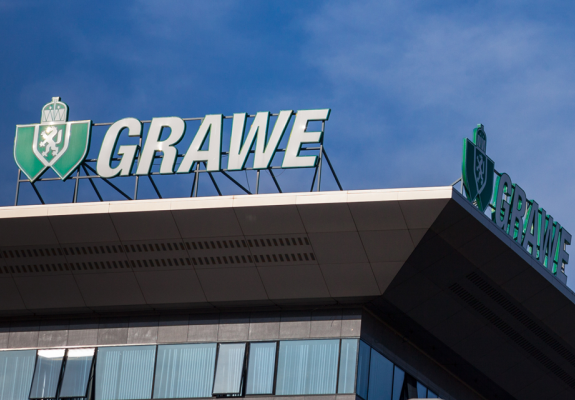The Impact of 5G Technology In Cyprus
Transforming Healthcare, Education, And Emergency Services
The advent of 5G technology marks a significant milestone in the evolution of telecommunications, promising to be a game-changer for many sectors worldwide with its high-speed connectivity, low latency, and massive device connectivity, and Cyprus is no exception. As 5G promises data speeds up to 100 times faster than 4G and supports a vastly greater number of devices per square kilometer, its implementation could be a pioneering transformation for the Cypriot economy and society.
5G technology promises significantly faster data speeds and more reliable internet connectivity than its predecessors. For an island like Cyprus, which aims to be a digital hub in the Eastern Mediterranean, this is particularly crucial. Enhanced connectivity can attract more digital nomads and technologically-driven businesses to the island, potentially boosting the local economy.
A study by the European Commission projects that the rollout of 5G could generate up to €113 billion per year in benefits for the EU by 2025, with the potential to create up to 2.3 million new jobs. For Cyprus, embracing 5G could contribute significantly to the local economy by attracting foreign investments and stimulating innovation. The country's strategic location, combined with advanced digital infrastructure, makes it an attractive destination for businesses looking to expand their operations in the region.
The concept of digital nomadism has gained popularity in recent years, with an increasing number of professionals seeking flexible work arrangements that allow them to travel while maintaining their careers. According to a survey by IWG, 70% of respondents indicated that flexible working arrangements are critical when choosing an employer. The ability to work from anywhere, supported by reliable and fast internet connectivity, is a key factor for digital nomads. With 5G, Cyprus can provide the technological infrastructure necessary to support this growing demographic, boosting tourism and local businesses catering to this market.
The journey towards 5G in Cyprus has been marked by strategic planning, regulatory adjustments, and technological investments. The Cyprus Telecommunications Authority (Cyta) and private telecom operators have played pivotal roles in the deployment of 5G infrastructure.
In December 2020, Cyprus held its first auction for 5G spectrum licenses, raising approximately €41 million. This auction was a significant step towards establishing a nationwide 5G network. Cyta, along with other major operators like Epic and Primetel, secured licenses to operate 5G services, paving the way for rapid advancements in telecommunications technology.
By early 2021, Cyta had already launched its first 5G network in major urban centers, including Nicosia, Limassol, and Larnaca. The ambitious goal is to achieve full national coverage by 2025, ensuring that all citizens can benefit from the enhanced capabilities of 5G.
The development of 5G in Cyprus has also seen significant investments from both the government and private sector. The European Union has supported these efforts through the Digital Europe Programme, which aims to boost digital capabilities and infrastructure across member states. The European Regional Development Fund (ERDF) and the Cohesion Fund have also contributed to the development of digital infrastructure in Cyprus. These funds are designed to reduce disparities between regions, and enhancing digital connectivity is a core component of this mission.
Additionally, partnerships with international technology firms have facilitated the deployment of cutting-edge 5G technology. For instance, Cyta has partnered with global technology giants like Ericsson and Huawei to roll out its 5G network. These partnerships have enabled Cyta to leverage state-of-the-art equipment and technological know-how, ensuring the efficient and effective deployment of 5G services. Ericsson, known for its leading position in the global 5G market, provides the infrastructure and expertise needed to build a reliable and high-performing 5G network.
Similarly, Primetel has collaborated with Nokia to deploy its 5G network. Nokia's extensive experience and advanced technology solutions have been critical in ensuring that Primetel can deliver high-speed, low-latency 5G services to its customers.
The healthcare sector in Cyprus stands to benefit immensely from the capabilities of 5G technology. High-speed, reliable internet can facilitate telemedicine, allowing for remote consultations, diagnoses, and even remote surgeries. This is especially beneficial for rural areas or isolated regions, where access to specialized health care is often limited.
Moreover, 5G will enable the widespread use of Internet of Medical Things (IoMT) devices, allowing continuous monitoring of patients’ vital signs. These devices can transmit data in real-time to healthcare providers, facilitating timely interventions and personalized treatment plans. The enhanced connectivity also supports advanced medical applications such as remote surgeries, where specialists can perform procedures from a distance using robotic systems.
Education in Cyprus can also benefit from the introduction of 5G. With higher internet speeds, interactive online learning and virtual classrooms become more feasible and effective. This can enhance educational accessibility and quality, especially during situations like pandemics where traditional learning environments are disrupted.
The integration of immersive technologies like virtual reality (VR) and augmented reality (AR) into classrooms can also create interactive and engaging learning environments, making complex subjects more accessible and understandable for students.
Additionally, 5G will facilitate the expansion of online learning platforms, providing students with greater access to educational resources and opportunities for remote learning. This is particularly relevant in the wake of the COVID-19 pandemic, which highlighted the need for robust digital infrastructure to support education continuity. With 5G, educational institutions can offer high-quality, real-time video lectures, collaborative virtual classrooms, and instant access to a vast array of digital learning materials.
5G technology can significantly improve the efficiency of emergency services in Cyprus. Faster data transmission allows for real-time communication and better coordination among emergency responders. Additionally, 5G can support advanced applications like real-time traffic monitoring, which can help in planning and executing quicker emergency response strategies.
Despite these benefits, the deployment of 5G in Cyprus comes with its challenges. These include the substantial need and high cost of infrastructure development, concerns about cybersecurity, regulatory approvals, and the potential health impacts of increased electromagnetic exposure.
However, the broader economic and social implications of 5G in Cyprus are profound. The technology is expected to drive innovation, create new business opportunities, and attract foreign investment, contributing to economic growth. The increased connectivity will also promote digital inclusion, ensuring that more citizens can participate in the digital economy.
The rollout of 5G networks and technology in Cyprus heralds a new era of technological advancement that could lead to a profound impact, affecting everything from daily communications to how critical services are delivered. As Cyprus continues to develop its 5G infrastructure, the focus should be on maximizing the benefits while mitigating potential risks and challenges. The future of 5G in Cyprus looks promising, with the potential to transform the island into a more connected and technologically advanced society.






